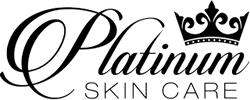Beyond basics—savvy medicine cabinet tips.
Posted by Posted by Dana Ramos, author of the best-selling book: The Skin Regime; Boot Camp for Beautiful Skin. See below for purchasing info. on Aug 19, 2016

Beyond basics—savvy medicine cabinet tips.
What you should also keep on hand, and some great tips.
Especially if you have children, you need basic medical supplies handy to treat common minor ailments. If you search the web for “well-stocked medicine cabinet,” you’ll find lots of articles with the basics and I’ll list those items here to save you the time. However, this article also has tips and products that aren’t usually found on other lists, but are great to know about.
So, if you print this article and take it to you to the drugstore, you’ll be covered for most of life’s little medical annoyances.
The Basics (what you really need):
For cuts and scrapes: Baid aids in various sizes, of course, but you also want to have an antibiotic ointment or cream such as the brand Polysporin. Many preparations also have a slight numbing ingredient to help take the sting out of minor cuts and scrapes and also to relieve itchy bug bites. Hydrocortisone cream is also good for treating insect bites and stings, minor swelling, itching and sunburns. Keep in ming that hydrocortisone cream is not as greasy as the ointment. For larger cuts, have sterile gauze and medical tape on hand.
To clean a minor cut, rinse it well and dab on some lightly-diluted (with water) hydrogen peroxide, not rubbing alcohol: Rubbing alcohol is good for sterilizing things such as thermometers or needles and tweezers used to pick out a splinter. You want to prevent an infection, so keep all cuts clean and reuse hydrogen peroxide at least twice during the day; you’ll need cotton balls and swabs such as the Q-tips brand for that.
Cough and cold medications, because you never know when one is going to come one. Nose drops will quickly unplug nasal congestion so you can breathe.
Pain and fever reducers, such as the brands Tylenol, Advil, Bayer Aspirin.

Pepto-Bismol treats a variety of stomach ailments: Gas, indigestion, diarrhea, nausea, heartburn.
Beyond the Basics (savvy ideas):
Sunscreen. Good to have on hand year-round so you don’t risk burns. (Check out the Cotz products)
Bug Repellent (keep away Zica mosquitos!)
Topical Lidocaine Numbing cream—such as the brand Topicaine. This cream is great; you leave it on for about an hour and it numbs the skin so well that a child will not complain when you have to dig out a splinter. Use it to numb your child’s skin before getting a vaccine, too. It’s also good for numbing the skin before waxing, piercing or laser treatments. If you can’t find it in the drugstore, look on a site like Amazon.com, or your pharmacist might be able to order some for you.
Another cool no-pain vaccine trick: Tell your child to slap their arm a few times immediately on the spot just before they are going to get a shot. This creates a temporary “confusion” of the pain-sensing nerves and they will not feel the injection!
Benadryl. This is a good all-around medication for minor allergy attacks.
Zycam Cold Remedy, spray and nasal swabs. It works! I spray a dose in my throat and use the nasal swabs when I am exposed to a cold, before I get on a plane, or if I think I am coming down with a cold. I also use it as recommended until I am sure no cold is developing . No joke—by using Zycam this way, I have not caught a single cold in almost five years! Just be sure to get the “Remedy” for cold prevention and not the products they make for after you catch a cold (unless you actuallycatch a cold, that is).
Ear drops to prevent “swimmers ear” if you are in the water a lot. Actually, a few drops of water-diluted rubbing alcohol works just as well.
Laxatives, for those hard-to-go days. Prunes work well, too, but not quite as fast. (Personally, I find that the laxative brand Colace (generic name, docusate Sodium) is more gentle than other brands.)
Mineral Oil is also a great laxative—and a terrific eye-makeup remover!
Emu Oil is another amazing eye makeup remover!
Re-usable ice packs, or simply use a Ziplock-type bag filled with ice.
All-purpose anti-itch eye drops.
Coconut water (not coconut milk or oil). To replace important electrolytes after stomach viruses, this is far superior to Gatorade.
Humidifier: So great to help relieve coughing and stuffy noses. There are some terrific mini-humidifiers you can find in many drugstores or online—great for the office or a dorm room.
Heating pad for sore muscles, and nice to have for when you have the chills.
I like to keep my makeups and skincare products in my bathroom, so instead of using valuable medicine cabinet real estate with stuff I don’t use very often, I keep a large plastic box full of all first-aid products in the family linen closet. Doing that will keep the kids from going through your bathroom every time they want a band aid (which is like, what?—every ten minutes?) If you have very young kids you need to have a locking box or keep medications where they can’t access them.
Check each year for expiration dates.
Always follow the product directions, dosages and warnings!
A lot of things can be treated easily and home, but when in doubt, see a doctor. My father was a pharmacist, so I grew up with a few rules of thumb. Here’s a good one: A cough is usually not serious, a fever is usually not serious if not too high (below 103, for instance). However, if you have a cough together with a fever—you should see the doctor to rule out pneumonia.
Where can I buy Dana's Book?
The Skin Regime; Boot Camp for Beautiful Skin, available as a Kindle download or Buy paperback to buy your paperback copy from Platinum Skin Care. You can also read the first chapter--FREE--by click here to read 1st chapter.
If you found this post helpful, we would LOVE it if you shared it with your friends socially!



